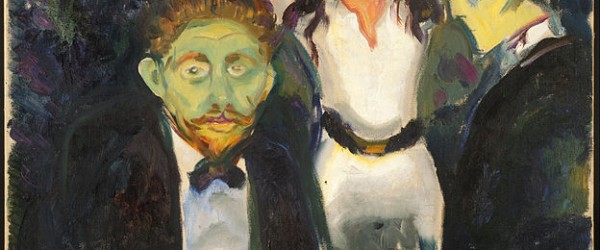
The Centenary
Fiction, LiteratureThat awful sound would not stop. The chanting, the interminable chanting, the muffled sound of which showed no sign of abating. Its monotony compounded her distress- after a grueling day of grieving, even the tenderest sob provoked her.
She compelled herself to reflect on what really happened, raking up the memory that was too tragic and searing to be deemed realistic only a few days earlier.
We were happy, she recalled. Of course such merriment was punctuated with contretempts, but they were never bitter, and quickly forgotten.
Were I ever content to dwell in a household where no evils had ever admitted the entrance? She wondered.
Yet there was this inclination to rebel, this unmitigated lust for a hazardous adventure. Out of this dreary, dingy, provincial home was what had been preying on her mind all summer. That summer, when the ceaseless rain could hardly relieve the interminable heat, when some nameless phantoms pestered her so in her sultry dream. How she…
The train of recollection was brought to an abrupt end as some relative approached her with eyes misted with tears. No chanting now. Everything was finally over. Mourners threw up to her stoical face words of futile consolation. She confronted each of them with defiant silence.
At night she slipped in and out of consciousness. Two imposing figures rose before her. Their faces were invisible, but once they bent down and she sensed that familiar fragrance- she smiled.
Together they merged into an amorphous mass. They filled an enormous room with their emptiness, frolicking about in the most ungodly manner and whimpering aloud in a corner once they were irrevocably deserted by the darkness.
Rarely were they perceived by strangers’ eyes. But their intimate talks, regardless of how strenuously they muffled their excited noise, could hardly escape the ears. One would walk into the room convinced that the wall and the floor were in the midst of a tryst. Their unabashed proclamations of love echoed deafeningly from every crevice and cranny.
At length the house shattered with anger; never once in its muted life had had intruders so blatant and undisguised with their affection. They were banished from the place but their sounds were canonised: sighs, moans, whisperings and the like.
She was curious to know their feelings when they first clapped eyes on Heaven. People tended to allay the fear of an indeterminate time of departure by imagining their afterlife to be whiling away in a Utopia, barred from all afflictions and ordeals. There were hardly any truths in that specious prospect, she knew.
She knew time stood still for those in Heaven. Their memories were forever trapped in a time warp. Snippets of scenes from days past flitted across their eyes like butterflies. They noticed its beauty but the recognition of the object was ever elusive. What difference did it make, then, if they were rendered blind? Heaven could be a newborn baby, swaddled on all sides with a dark blanket. So tightly and securely was the baby swaddled that she sunk into a sweet suffocation before long. Her world became an eternal whirl. Like the baby, everyone in Heaven was stuck ruthlessly in his listless mirth.
At day she woke. It was a glorious day so she joined others and basked herself in the sun. There used to be three of them. Her abiding presence had been an object of torment and the cause of dissention for the other two. People used to warn her that some day God would punish her recklessness by reminding her repeatedly her wrong.
My wrong? When was I ever wrong? She looked askance heavenwards and inquired. When was I ever wrong?
Both of them were weeping. Their dewy eyes transformed into cluster of clouds. She felt their tears on her shoulders; she tried in vain to wipe them away as they were blood red. The sky blasted but they kept staring down at her, until the sun rolled down from their melting faces.
Heaven was suddenly blind and black.






















